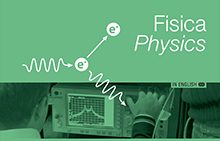Presentation
Master's Degree in Physics - University of Ferrara
[Il Corso di Studio in Breve - Italian Version]
This is an advanced course in Physics awarding a M.Sc. degree based on 120 ECDS credits; this course is fully taught in English. This programme is the most obvious follow-up if you hold a B.Sc. in physics or related areas. The main objective of this course is a deep and flexible understanding of the main areas of modern physics. The course is based on individual study and on actual research work, done in close contact with researchers working on advanced topics in a wide range of areas ranging from fundamental physics to advanced aspects of applied physics.
This course gives students all skills needed to address a wide range of job opportunities:
- those looking for a job in a technology related area have an opportunity to develop the advanced skills needed in a high-tec environment, learning how to model and analyze the behavior of complex systems, how to design complex measurement systems and how to use state-of-the-art scientific and engineering instrumentation and advanced computer systems.
- those who see their future in research have an opportunity to gain a deep theoretical and experimental understanding of the main areas of modern physics, as well as an early research experience, working on projects and stages done in close contact with researchers pursuing their work.
- for those who see thier future in teaching, our M. Sc. programme is the starting point to enter the accreditation process to become a High School teacher.
Regardless of their specific interests and motivation, our M.Sc. graduates have a deep understanding of the main areas of modern physics, at the theoretical and experimental level, a working knowledge of the main experimental and data handling techniques and a full appreciation of the scientific method.
Following her/his own specific interests students may choose among several key areas of physics, including Astrophysics, Space Physics and Physical Cosmology, Condensed Matter, Medical Physics, Nuclear and Subnuclear Physics, Material Science and Technology, Theoretical Physics, Computational Physics.
Students have an opportunity to spend part of their time at several research Institutions, in Italy and abroad, such as:
- CERN (Geneva, CH),
- SLAC (Stanford, USA),
- Fermilab (Chicago, USA),
- DESY (Hamburg, D),
- ESFR (Grenoble, F),
- GSI (Darmstadt, D),
- Consiglio Nazionale delle Ricerche,
- Istituto Nazionale di Astrofisica,
- Istituto Nazionale di Fisica Nucleare.
The Master of Science degree program also includes a "Double Degree" program with the Universite de Paris-Sud, now Paris-Saclay, one of the most prestigious University in France.
All students may apply to the "double degree” programme. Following a selection procedure, a limited number of students can access the programme. Students can choose from several tracks that correspond to several French masters and spend one year in Italy and one in France. Upon successful completion of the two year programme, the students will be awarded a Master's degree at both the Universita’ di Ferrara and the Universite' de Paris-Sud. The admission to the second year of the double degree is subject to evaluation of the results of the first year.
At the end of their studies, students with an excellent international career and strong interest in international activities, will be awarded with the special diploma of the "Ferrara School of Physics", in addition to the standard master diploma. This certificate will enhance the visibility of the special international competences of the awarded students in the work world.
M. Sc. graduate may continue their academic training as graduate students, applying for the Ph. D. programme offered by the Department.
Research Activity
Physics graduates will complete their academic career by obtaining the Master Degree in Physics and then work and specialize with teachers and researchers from the Physics Department in the following fields:
Astrophysics and Space Physics, Medical Physics, Nuclear and Subnuclear Physics, Solid State Physics and Technology, Theoretical Physics.
- Physics and Earth Sciences Department: http://fst.unife.it
About Unife
- The city of Ferrara and its University (slideshow, file pdf, 5 MB)
Come and study at the University of Ferrara! (YouTube video)
UnifeTV on YouTube
Physics and Eearth Sciences Department on YouTube





